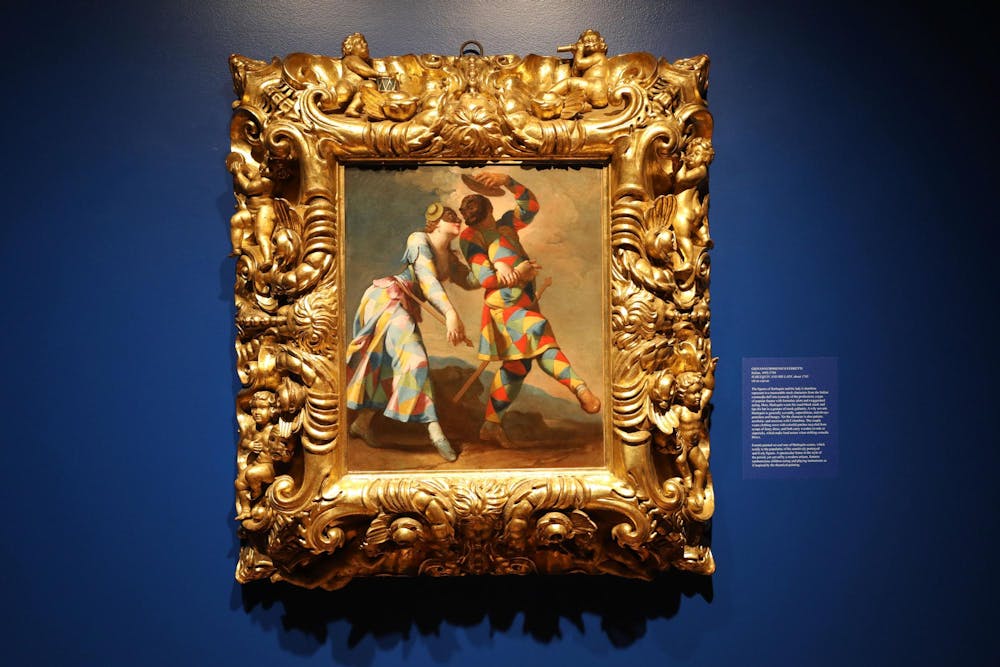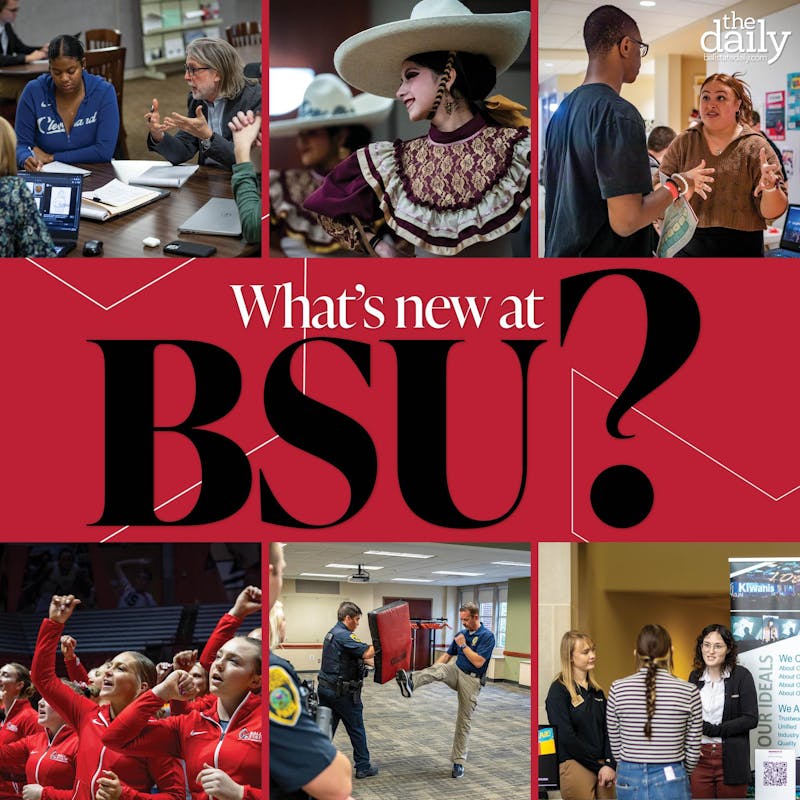Bold colors, ornate frames, dramatic subjects. All of these are characteristics of the lost era of art in the new exhibit at the David Owsley Museum of Art (DOMA) titled “Beyond the Medici.”
The exhibit, which opened Feb. 22, features 30 pieces of 17th-century Florentine Baroque art from both the collection of Sir Mark Fehrs Haukohl as well as DOMA’s collection.
This exhibit will only visit three universities, Ball State University being the second, following its first stop at Rollins College before heading to the University of Pennsylvania.
For Fehrs Haukohl, the reasoning for a tour of colleges is simple.
“One of our grand imprimaturs is to provide art education to students,” Fehrs Haukohl said. “We’re very concerned that art education is taken away.”
This collection hits on an era of art that is often glossed over, giving students a view of a style they might not see in the everyday art gallery and museum.
“When most people take a survey of Italian art, they do the Renaissance in Florence and learn all about that,” DOMA Director Robert LaFrance said. “When the Renaissance ends, they switch over to Rome and Naples and other places, and Florence gets left behind in terms of study.”

There are a lot of key elements that characterize the era of art, but one that makes it truly come to life is the ornate frames that are specific to 17th-century Florentine Baroque art. The frames must be paired with the painting, many of which must be bought or created after the acquisition of the paintings.
“It’s a wall leader,” Registrar for the collection Araceli Aguilar said. “The frame comes out. Something that he has intentionally done when — if he’s recreating or if he’s purchasing it — the frame continues to tell the story of the painting."
For art students, the collection offers a wide variety of styles of painting on different mediums that aren’t seen very often, creating an enriching viewing experience.
“This collection has oil on copper, oil on stone, oil on paper, oil on canvas and oil on panel,” Fehrs Haukohl said. “Each one of those mediums has a different type of brushstroke. Discovering that, I think, will be exciting for the students, too. The art history students, the painting students and the people who are getting their masters in fine arts.”
This exhibit offers a wide array of experiences for students of all majors and interests, and that’s how Fehrs Haukohl wanted it to be. He highlighted this era’s applicability to many thought groups and areas of study.
“We think art education helps a lot to develop a sensitivity so that students aren’t just business or math or engineering focused, [but] that they’re well balanced,” he said.

Not only is the art itself an experience for all students, but there will also be a range of events throughout the duration of the exhibit as part of the Arts Alive program through the College of Fine Arts.
The main event through the program, tied to the “Beyond the Medici” exhibit, is a performance by the Indianapolis Baroque Orchestra at Sursa Hall March 28 at 7:30 p.m. It is free for all Ball State students and $10 for community members.
“The definition of art is a broad definition,” Fehrs Haukohl said. “It’s art, it’s dance, it’s music, it’s painting, it’s opera, it’s performance. You should really feel. [Araceli and I] believe the student body should have that kind of presentation, and you’re going to have that because you’re having a wonderful Baroque concert.”
This is just one of many events that revolve around this collection. LaFrance hopes to have more music — hopefully, student musicians — in the exhibit to enrich the experience for patrons.
“I want them to play in one of the galleries, so you have the art there and the musicians there in the gallery,” LaFrance said.
Along with these possible pop-ups, there are various events hosted by DOMA, such as several "Music in the Museum" dates featuring students and faculty from the Honors College and the School of Music performing works from the Baroque period.

The museum will also be holding various workshops including "Writing in the Galleries: Icons, Angels and Allegories," a writing workshop inspired by the pieces in the exhibit. Participants will then be invited to a poetry reading paired with one of the “Music in the Museum” performances. The workshop is free, but spots are limited.
The exhibit and activities offer a well-rounded peak into a dramatic and intriguing era of art, allowing patrons to fully immerse themselves through various mediums.
“It’s not a snoozy subject,” Aguilar said. “It’s not ‘Oh, a rich man buys really expensive paintings and puts them on a wall.’ There’s so much more. There’s so much for the curious mind to find out about.”
The exhibit will be open through the end of the semester, closing May 19.
Contact Madelyn Bracken with comments at madelyn.bracken@bsu.edu.





The Daily News welcomes thoughtful discussion on all of our stories, but please keep comments civil and on-topic. Read our full guidelines here.